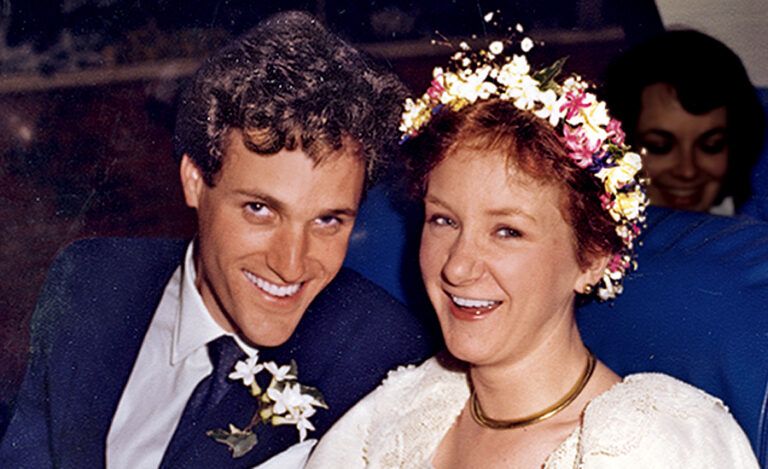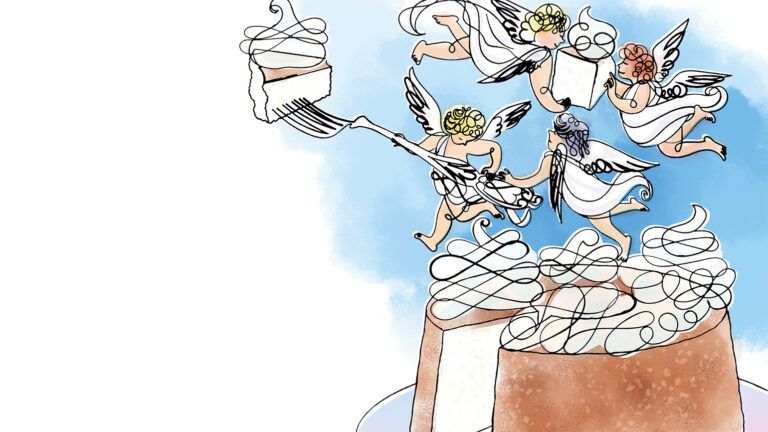Three weeks after being interviewed by USA Today, I was finally going to see the article in print.
I bought a copy of the newspaper on my way into work and settled at my desk to read it. I’d told everyone I knew about the feature, which appeared right on the front page.
I leafed ahead to the continued page inside, looking for the familiar photo. There it was, a portrait of my daughter Liz, taken shortly before her death.
It was really Liz who was featured in the article. With school starting soon, the paper wanted to do a story on fire safety for students living off campus.
Three years before, Liz was just starting her sophomore year at the University of Minnesota. She and some friends lived in a house off campus. It caught fire early one morning while everyone slept. Liz had died of smoke inhalation.
Most college students were used to living at home with parents or in a dorm with supervision. They didn’t think about protecting themselves when they moved off campus. I hoped this article might keep other families from going through what we went through.
I sipped my coffee and started the article. But as I read the tips about smoke detector batteries, smoldering cigarettes and blocked heating vents, I lost sight of what had motivated me to give the paper an interview in the first place.
Instead of feeling good about the kids who might be saved by the information, I got more and more frustrated. All my anger from three years ago came back.
Liz didn’t have to die, I thought. The simplest precautions could have prevented it.
I was angry at the newspaper for not printing such an article in time for Liz to read it. I was angry at Liz. I couldn’t forgive her for dying. I couldn’t forgive myself for being angry at her.
This article was supposed to make me feel close to Liz, make me feel like we were doing something good together. Instead it had pushed her farther away than ever, with my wall of anger between us.
There was a tap on my office door and I looked up. Two of my coworkers poked their heads in. “I think it’ll help a lot of people,” one of them said.
“Liz looks beautiful in the picture,” said the other. I accepted their compliments as best I could.
With a sinking feeling I realized this was just the beginning. Why had I told everyone the article was coming out? Why was I so naïve as to think I would enjoy reading it? The article was addressed to college students getting ready for the new school year, not grieving mothers.
I bunched up my paper and shoved it in the credenza, out of sight. I didn’t want to see or think about it again. But I got numerous calls and e-mails. All day people stopped me in the halls to bring it up.
“Your daughter’s beautiful,” a man from down the hall said, catching me on my way back from lunch. “You must be proud of her.”
I nodded, barely stopping myself from snapping at him, and hurried back to my office.
I was proud of Liz. I always would be. She was smart, loving and fun. But right now when I thought of her all I could think of was my anger at her death. About the mistakes she’d made that might have put her in danger.
Liz had been drinking. She should have known better. I should have known better. Maybe if I were a better mother, this wouldn’t have happened.
Back at my desk my computer beeped to announce yet another e-mail, this one from Liz’s high school French instructor. Jan was Liz’s favorite teacher and we’d kept in touch. But Jan hadn’t written to talk about the article.
“I was cleaning out my class files yesterday,” the e-mail read, “when a folder fell on the floor. It was marked Liz Wencl Essay, an assignment I’d given five years ago.”
I could easily imagine a younger Liz at her desk, carefully working on any homework Jan gave her. It was a relief to think about something other than her death. “I asked the students to write a letter in French, telling one of their parents what he or she represented in their life. This was the letter Liz wrote to you. Can I bring it by the house?”
A letter from Liz? Today, of all days? Jan came over after work with the folder. Just seeing Liz’s hand-writing brought her closer to me. “My French isn’t very good…” I said.
Jan handed me another paper. “I translated it for you,” she said. “I didn’t want you to miss a word.”
“Dear Mom,” Liz’s letter began. “I know that you love me. You show me each day. Don’t think you are a bad mother. It isn’t true!” The words Liz had written years ago were just what I needed to hear today. “I would like to be a better daughter,” Liz went on. “You are my mother and I would never choose anyone else.” I felt only love for this dear daughter of mine.
“I’d forgotten all about this assignment,” Jan said. “But now I remember encouraging Liz to share this beautiful letter with you. She said, ‘I will. When the time is right.’”
When the time is right. What time could have been more right than today, when I needed that letter the most?
I framed it and hung it in our living room. Whenever I need to feel Liz close by, I read her words again. I’ve even learned a little French.
I give thanks for my daughter and l’ange who brought her back to me.






